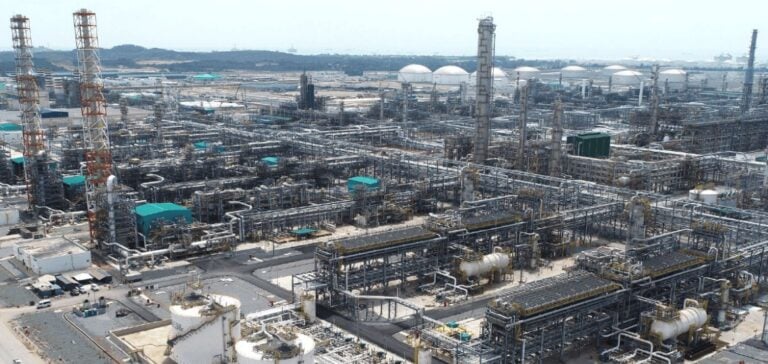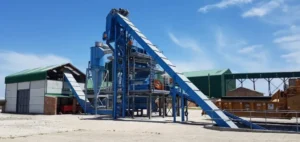Euglena, Petronas and Eni recently announced their decision to invest in a biorefinery in Malaysia.
The project, valued at $1.3 billion, represents a significant development in the production of sustainable fuels, responding to the growing demand for biofuels in the aviation and transportation sectors.
The biorefinery will be located in the Petronas Pengerang Integrated Complex in Johor, and is scheduled to be operational in the second half of 2028.
Production and Technology
The new facility will have a processing capacity of 650,000 tonnes per year, using raw materials such as used vegetable oils, animal fats and vegetable oil processing residues.
Eventually, the biorefinery will also incorporate biomasses, such as algal oil from microalgae, to diversify and enhance the sustainability of raw materials.
State-of-the-art technology
The plant will use Ecofining technology, developed by Eni and Honeywell UOP, for flexible, optimized production of sustainable aviation fuels (SAF) and hydrogenated diesel (HVO).
This technology will enable a wide range of feedstocks to be processed efficiently, maximizing biofuel production.
The aim is to produce up to 12,500 barrels per day of various biofuels, such as SAF, HVO and bio-naphtha.
This production capacity will help meet the growing demand for sustainable fuels in the aviation and transportation sectors.
Investment and Financing
The project will be financed by capital injections and proportional loans from shareholders, totaling between $65 and $195 million for a 5% to 15% stake in the joint venture.
Petronas and Eni will be the main shareholders, while Euglena will have the option of increasing its stake to 15% within nine months of closing.
The partners forecast annual profits in excess of 6 billion yen for Euglena with a 15% stake, based on a biofuel price of 300 yen per liter and a net margin of over 20%.
The joint venture will be governed by board members appointed by Petronas, Enilive and Euglena.
Development strategies
Euglena, a pioneer in Japan, established the first demonstration plant producing renewable aviation and diesel fuels in 2018.
The company was also the first to introduce domestic SAF into the distribution system at Narita International Airport and to supply SAF for government aircraft.
At the same time, Petronas signed a 230,000-ton-per-year FAS takeover agreement with the Malaysian Aviation Group, expanding its FAS production capacity via alcohol-to-jet and co-treatment processes.
Future prospects
According to S&P Global Commodity Insights, global SAF consumption is expected to account for 0.61% of aviation fuel consumption in 2024, up from 0.31% in 2023.
This proportion could rise to 3.24% in 2040 and 24.06% in 2050, illustrating the growing importance of sustainable fuels.
The joint $1.3 billion investment by Euglena, Petronas and Eni in a biorefinery in Malaysia represents a major step forward in the production of sustainable biofuels.
By combining cutting-edge technologies with a diversified sourcing strategy, this project is well positioned to meet the world’s growing need for sustainable fuels.






















